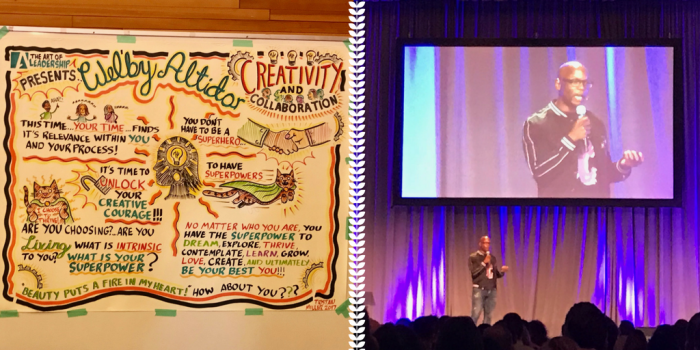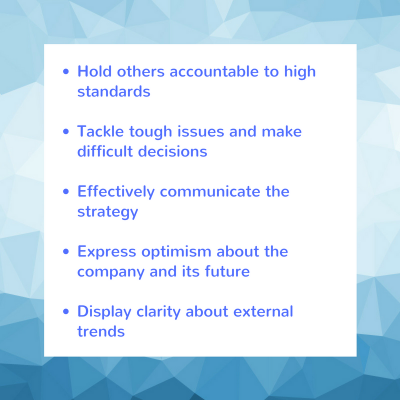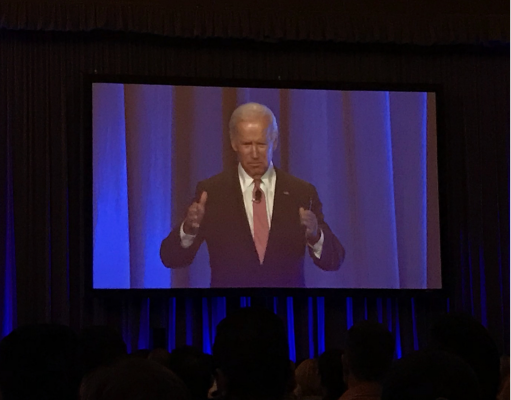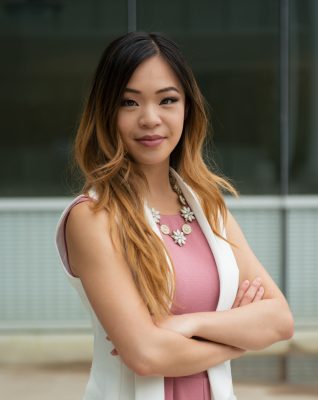
Living life with purpose is no easy feat, especially when faced with decisions that can potentially change the course of history. At the Art of Leadership conference, many great perspectives were shared on how we can guide our own teams to success. Below are a few insights from the minds that lead teams in Cirque du Soleil, Bloomberg TV, and the United States government.
Self-Awareness – the meta-skill of the 21st Century

Organizational Psychologist and Researcher, Dr. Tasha Eurich
As a society, we are becoming more self-absorbed and less self-aware. A common side-effect of social media. Contrary to popular belief, meditation isn’t the way to solve this problem because thinking does not equate to knowing. To find out how self-aware we are, Dr. Eurich defines two levels of awareness to master; the internal level which governs how clearly we see ourselves and the external level which realizes how others see you. Improving our internal awareness involves rephrasing why a particular outcome occurred to what caused the outcome to occur. While focusing on the why tends to trap us in eternal self-loathing, changing how we structure this question allows us to remain objective and identify solutions for similar occurrences in the future.

To become more cognisant of our self-awareness, Dr. Eurich suggests finding a loving critic—someone who has your best interests at heart but isn’t afraid to be frank and provide you with constructive criticism. Once you’ve identified one or more people who fit this description, take them out to lunch and ask them two questions:
- What am I doing that’s helping me be successful in your eyes?
- What am I doing that’s the most annoying to you?
Sometimes we may not be aware that our subconscious habits could potentially be bugging others, and other times we forget to acknowledge our successes. After your loving critic provides you feedback, it’s up to you to act on it! One thing is for certain though, ignorance is not bliss.
Leading with Creative Courage

Former Executive Creative Director of Cirque du Soleil, Welby Altidor
Take a step back, and ask everyone on your team to tell you their super power. It’s the quality that makes us unique, and something that we’re amazingly great at doing. Welby began his speech with a series of self-reflecting questions, related to how he would approach members of his team at Cirque du Soleil. The genius he brings as a leader is being able to foster the most fertile environment by mapping out each other’s super power, and creating a harmonious space for the team to grow. His framework for nurturing growth and creative leadership is as follows:
- Caring first – Ask what matters to your team. This helps lay the foundation for team building and forming strong relationships.
- Securing safety – Make it clear and visible that we perform in a safe environment. Your team should never be afraid to make mistakes, but focus on getting back up and applying what you’ve learned.
- Foster trust – Be consistent. This is especially important at Cirque du Soleil because a team without trust can’t work harmoniously. A by-product of trust is respect which you earn through consistently showing your team that you care.
- Play with danger and limitations – with an emphasis on play, this aspect focuses on pushing past your boundaries and not being afraid of what may lie ahead (assuming that these are calculated risks).
- Discover Breakthroughs – Self doubt and questioning are areas that clouds the minds of those on the road to achieving great feats.
- Dream – Finding a role model or mentor helps with this, because once you see one person in the same circumstances can achieve great things, you realize you can do them too!
- Grow – Keep on trying and aiming for your goals until you’ve made it!
These steps are performed chronologically, and the successes it’s developed are proven with Cirque du Soleil’s innovative shows!
Innovation – the individual pursuit

Bloomberg TV Canada Anchor, Amanda Lang
The thirst to do better is an innate human quality we all share. As individuals we strive to do more and to grow ourselves in some way, shape, or form. Amanda Lang challenges the status quo by mentioning how schools focus on linear growth through getting answers as fast as possible. In reality, processes like this can kill creativity. Students who ask too many questions are thought of as disruptive and are taught that there are negative real world ramifications for their curiosity. Making others feel like they’ve asked the wrong question is the fastest way to stunt creativity.
How you think is who you are, and we all have different styles of thinking. That’s why you should never shut down questions, especially when in a team setting. If you don’t ask the right questions, you don’t get the right answer. So what are the questions we should be asking to encourage critical thinking and understanding?
Begin with what you know and ask yourself, what do you strongly believe? Then flip it and ask what does the other side believe? In the world we live in now, understanding these differences can help bring us together. In doing all of this we can eventually improve our Adaptability Quotient (AQ) – it’s the new emotional intelligence (EQ), that determines how well we can embrace and leverage change in our future. A key takeaway from Amanda is that people don’t change together, we change differently at the same time. So don’t shy away from different paths of thought!
Good Intentions are not Enough – Accountability and Leadership
When it comes to leadership, good intentions are not enough. Molinaro’s discussion focused on how leadership is an active decision that needs to be held at a higher standard, as opposed to being an obligation. Often times, those who end up in leadership roles are there because of the length of time they’ve been at an organization for or because they’ve perform exceedingly well in a technical area. But the duration of your employment or familiarity of a skill doesn’t always indicate how well you can lead a team.

So what can you do to hold yourself accountable? Molinaro provides 5 steps we can take, alongside a leadership contract to help us with our leadership journey, as shown in this image above.
When we are presented with the responsibility of leadership, think clearly about how we can leave the organization better than we found it. The goal of leadership isn’t to be liked, so don’t be afraid to get tough. As a leader, ask your team where are we going, and what can we do to contribute? By asking these questions, you can create strategic clarity to help guide your team to success.
Joe Biden – 47th Vice President of the United States

Joe Biden, 47th Vice President of the United States
As a powerhouse for free speech, a voice against domestic violence, and the Vice-President of the United States from 2009 – 2012, Joe Biden inspires us with a few words of wisdom learned from his time in office.
During his term, Osama bin Laden was located by the American government. In this moment, Obama had two days to decide whether or not to act on the security intel that suggested Bin Laden’s hiding place. To guide Obama through the decision, Biden’s advice was to do what you think is right. True leadership comes out during these high pressure moments, where a decision you make not only risks your career, but a lack of decision also has severe consequences to suffer.
A real leader is happy to know they did the right thing at the end of their careers, as opposed to rationalizing and prioritizing commitments over their values. This happiness generally resides in a space where you’re doing something for society, instead of something for yourself. To find that inner motivation that brings you happiness, Biden has three actions you should incorporate into your life in order to lead a purpose driven life:
- Having something to do
- Having something to love
- Having something to look forward to
Although this provides the framework for living with moral courage, it is up to you to find your place in the community and follow through.

Driven by technology, innovation, and laughter, Bailey Wong is in her fourth year at Simon Fraser University’s Beedie School of Business. Concentrating in Marketing, Management Information Systems, and Entrepreneurship, her creative mind never settles as she is always looking for ways to get involved. Bailey is currently a Beedie Ambassador and works part-time at ImpactVR, which provides VR and 360 content solutions for businesses. If any of these concepts inspired you, feel free to reach out to her for a coffee chat at baileyw@sfu.ca!